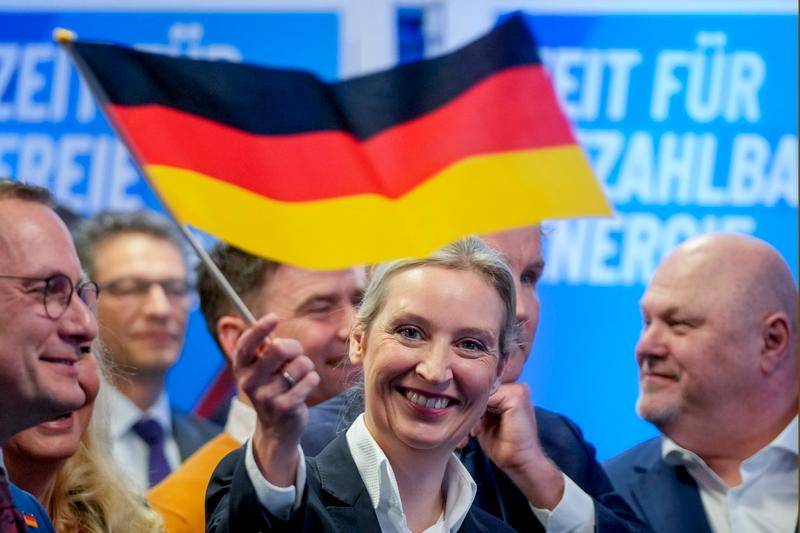Germany Labels AfD as an Extremist Organization in Landmark Decision
In a move that marks a turning point in Germany’s postwar political landscape, the Federal Office for the Protection of the Constitution (BfV) has officially designated the far-right Alternative for Germany (AfD) party as an extremist group. This unprecedented step follows years of investigations into the party’s activities, rhetoric, and ties to radical networks, sending shockwaves through the country’s political establishment and raising questions about the future of German democracy.
The BfV, Germany’s domestic intelligence agency, announced the designation after concluding that the AfD poses a threat to the democratic constitutional order. The decision was based on evidence gathered over several years, including the party’s anti-immigrant stance, anti-Muslim sentiment, attacks on the press, and attempts to undermine public trust in state institutions.
Founded in 2013 as a Euroskeptic party opposing bailouts during the European debt crisis, the AfD initially attracted a relatively narrow base of conservative economists and nationalists. However, the party quickly evolved into a broader populist movement, especially after the 2015 refugee crisis when it capitalized on public fears over immigration and security.
In the 2017 federal elections, the AfD stunned Germany’s political class by securing 12.6% of the vote and entering the Bundestag (parliament) as the third-largest party. Since then, the AfD has consistently polled between 10% and 20% nationwide, with particularly strong support in eastern states like Saxony, Thuringia, and Brandenburg.
While AfD leaders have repeatedly denied accusations of extremism, several regional branches — particularly the party’s youth wing and its eastern chapters — have been under formal surveillance for suspected ties to far-right extremist groups. Critics have accused the party of enabling neo-Nazi sentiments and providing political cover for racist and xenophobic movements
The BfV’s decision comes after an extensive legal and investigative process. In 2021, the agency classified parts of the AfD, including its “Flügel†faction and youth wing, as suspected extremist organizations. The Flügel, led by figures such as Björn Höcke, has often been described as the party’s most radical wing, openly embracing ethnic nationalism and revisionist views of Germany’s Nazi past.
Over time, the BfV expanded its scrutiny to the entire party, collecting evidence from speeches, social media posts, internal communications, and public demonstrations. Among the BfV’s key findings were that the AfD systematically incited hatred against minorities, propagated conspiracy theories, and sought to erode the democratic order enshrined in Germany’s Basic Law.
In announcing the designation, BfV President Thomas Haldenwang stated: “We have reached the conclusion that the AfD, as a whole, pursues goals that are incompatible with the fundamental principles of our constitution. This is not a decision we take lightly, but one necessitated by the evidence before us.â€
The extremist designation has major consequences for the AfD’s operations. As an officially identified extremist group, the party’s communications, finances, and personnel can now be more closely monitored by intelligence services. This includes the potential use of informants, undercover investigations, and surveillance of its leaders.
However, the decision does not mean an immediate ban on the party. Under German law, banning a political party requires a ruling by the Federal Constitutional Court — a legal process with an extremely high bar, designed to protect political pluralism even in the face of controversial ideologies. Nonetheless, the designation deals a serious blow to the AfD’s credibility and could affect its fundraising, media presence, and alliances, both domestically and within the European far-right.
The AfD leadership has reacted angrily to the news, calling the decision politically motivated and vowing to challenge it in court. “This is an attack on democracy itself,†party co-leader Alice Weidel declared. “The government is trying to silence the opposition instead of engaging in fair political debate.â€
The BfV’s announcement has been met with a mix of relief and concern across the German political spectrum. Chancellor Olaf Scholz welcomed the move, describing it as “an important step in defending our democracy against those who seek to undermine it from within.†Interior Minister Nancy Faeser said the decision sends a clear signal that “extremism, no matter in what form, will not be tolerated in our society.â€
Leaders of the Christian Democrats (CDU) and the Greens also voiced support, with CDU chairman Friedrich Merz saying, “The AfD has long since crossed the line from populist criticism into open extremism.â€
On the other hand, civil liberties advocates have urged caution. Some warn that heavy-handed intelligence measures risk alienating AfD voters and deepening political polarization. “We must be vigilant in defending democracy, but we must also avoid turning legitimate dissent into a security issue,†said Benjamin Strasser, a liberal Free Democrats (FDP) lawmaker.
With European Parliament elections on the horizon and several important state elections coming up, the timing of the BfV’s decision could significantly shape Germany’s political landscape. The AfD has been polling strongly in parts of eastern Germany and was hoping to build on its momentum. Whether the extremist label will diminish its appeal or reinforce its image as a rebellious outsider remains an open question.
The designation also has international implications. European far-right parties like Marine Le Pen’s National Rally in France and Italy’s League party have sought alliances with the AfD. The official extremist label may complicate these partnerships and affect the far-right bloc’s strength in the European Parliament.
As Germany grapples with rising political polarization, economic uncertainty, and debates over immigration, the AfD’s future — and that of the country’s political center — hangs in the balance. One thing, however, is clear: the German state is no longer willing to treat the AfD as just another opposition party. Instead, it has taken the extraordinary step of classifying it as a threat to the very system it seeks to represent.



No comments yet
Be the first to share your thoughts!